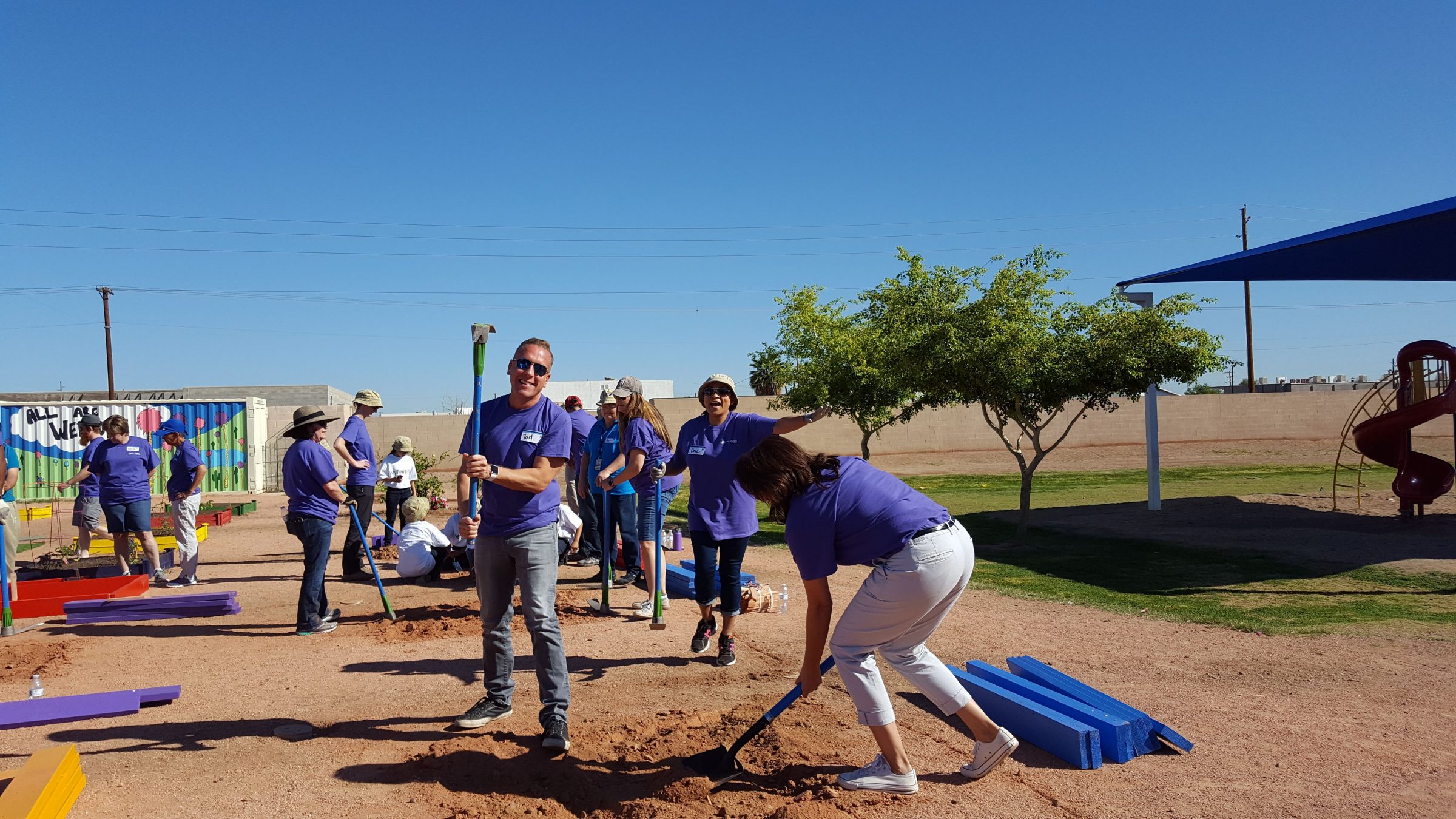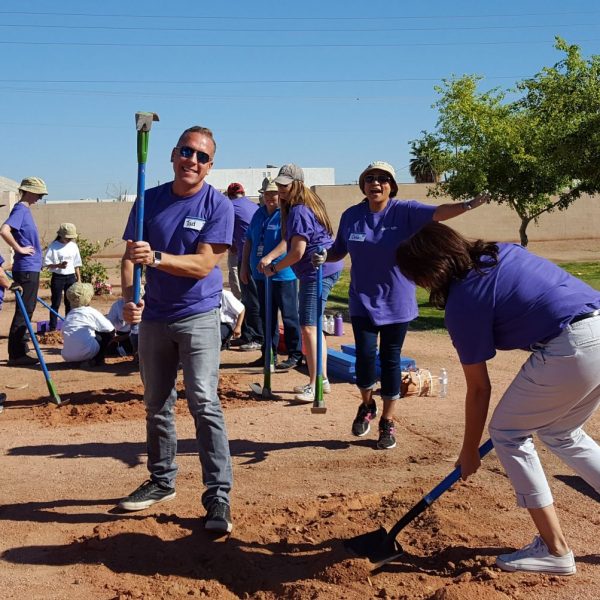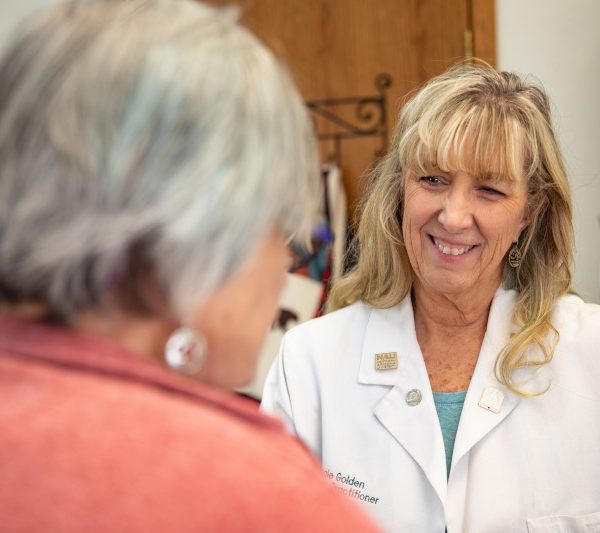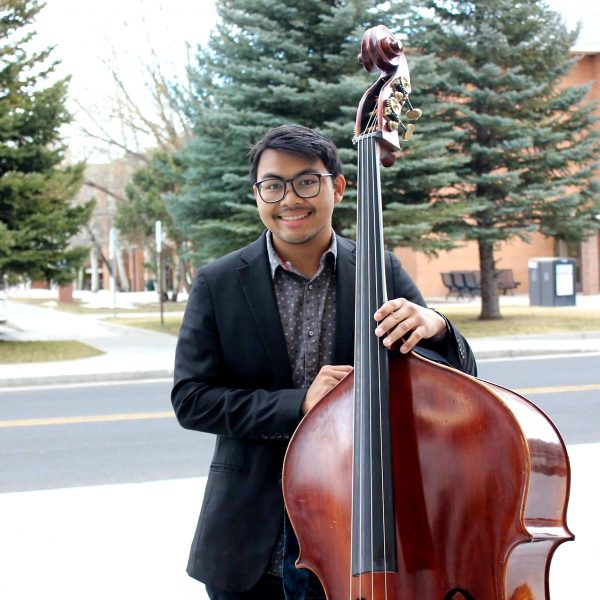NAU alumnus Tad Gary is passionate about helping people get the behavioral healthcare they need.
Tad Gary, BS Psychology ’96, is the deputy chief executive officer of Mercy Care, a nonprofit healthcare plan. He is very active in the community and serves on multiple boards, including the Maricopa County Continuum of Care Board and the board for one•n•ten, an organization supporting LGBTQ youth and young adults. Gary, a first-generation student, majored in Psychology at Northern Arizona University. He played clarinet and saxophone with the NAU wind symphony, chamber orchestra, and marching band. Gary also was a member of the Flagstaff Symphony Orchestra and provided teaching and mentoring to Flagstaff Youth Orchestra members.
Please briefly describe your career.
I serve as the deputy chief executive officer of Mercy Care, an Arizona not-for-profit managed-care health plan serving Medicaid and Medicare members. Mercy Care offers integrated physical and behavioral health benefits for Arizonans eligible for AHCCCS. Mercy Care also provides direct support through community reinvestment, grant funding, sponsorships, and other financial investments. In addition, volunteer service hours, board participation, and fundraising efforts assist nonprofit organizations and programs in addressing addiction recovery, housing, school-based services, food insecurity, and COVID-19 pandemic support across Arizona.

I serve on the Maricopa County Continuum of Care Board, the countywide entity that allocates housing funds. I am also on the board for one•n•ten, a nonprofit that helps teens and families within the LGBTQ+ community with resources, support, and programs that provide self-expression and positive encouragement.
I was an appointee of the State of Arizona Opioid Review Council and was appointed to the Phoenix Police Review and Implementation Ad Hoc Committee. I am the former president of the Arizona Counselors Association and former president of the Institute for Mental Health Research EpiCenter, serving adolescents experiencing their first episodes of psychosis.
Were any faculty helpful in helping you move forward to meet your goals during your time as an undergraduate at NAU?
Yes, two NAU professors were instrumental in my success at NAU.
Despite her busy schedule, psychology professor Virginia Blankenship took the time to coach and support me, both professionally and personally. My parents did not go to college, so having someone who could problem-solve with me and help me figure out how to overcome barriers was very helpful. Dr. Blankenship supported me in building my research skills, conference presentations, and a range of other skills critical to my success as a student and, ultimately, a professional.
The clarinet professor Michael Sullivan was also helpful. Dr. Sullivan helped build my confidence as a person and a musician. Low self-esteem plagued me as a student, and he helped build that self-esteem through music, support, and guidance.
What advice can you share with other first-gen students?
- First and foremost, as a first-generation student, and no matter your background, you deserve to be where you are—attending NAU!
- Find a mentor, ideally someone with a similar background.
- Get to know your professors early on and stay connected with them.
- Have goal-oriented friends who support you in doing the hard work to get through college successfully while also juggling the other demands of life and who help you have fun along the way.
- Pick a degree program you are passionate about.
- Participate in NAU clubs/groups.
What has been most challenging for you in your education or career? How did you handle it?
Behavioral health has only recently come to the forefront in terms of parity with physical health, maybe in the past decade or so. Advocacy for that parity has been something that I and many of my peers and colleagues in healthcare have been involved in for years. That advocacy has led to advances in the delivery of integrated physical and behavioral healthcare, especially here in Arizona. Now we’re focused on ensuring access to services that improve an individual’s social determinants of health—those factors aside from access to healthcare that determine someone’s overall well-being, such as stable housing, reliable transportation, and consistent access to healthy food.
What do you find inspiring about your career? What keeps you motivated in your work?
Helping members enrolled in our health plan live their healthiest lives and achieve their full potential is what keeps me motivated. We had a Mercy Care member who experienced what is called a psychotic break in his late teens. He received a Serious Mental Illness (SMI) designation and got into treatment, including therapy and medication. He became a member of our Youth Leadership Council, graduated from high school, and today he’s an active-duty member of the United States Marine Corps. He’s an inspiration to me because he’s a tremendous example of how recovery from mental illness is possible.
What did you find inspiring about your time at NAU?
At NAU, I learned how to become independent and make good decisions for myself. I loved living on campus and being part of the NAU community. No offense to any other Arizona institute of higher learning, but NAU’s campus is the prettiest in the state, and I will die on this hill!
What makes you proud to be an alumnus of NAU?
NAU was one of the first universities in Arizona to expand learning opportunities beyond the main campus. Finding alternative ways to help students learn and meet them where they are is so important to ensuring people get the education they’re seeking.
Why should a student choose NAU?
I chose NAU because there was a smaller student population than the other public universities. I stayed at NAU because of the community that forms at a smaller university. I also had excellent professors and an opportunity to pursue a degree that has allowed me to help other people throughout my career.
I suppose a better question is, why wouldn’t a student choose NAU?
For more information on how you can stay connected with your alma mater and fellow Lumberjack alumni, please visit our Advancement | Foundation page.








